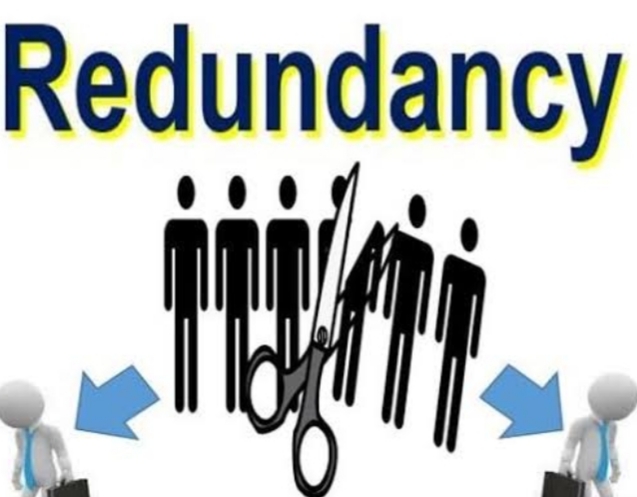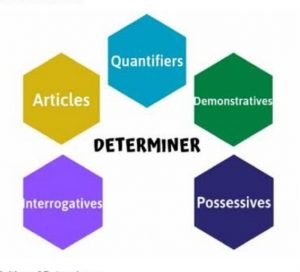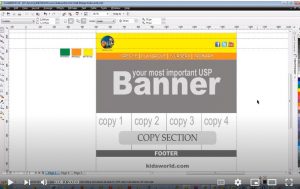
Credit: Market Business News
REDUNDANCY
Redundancy is the use of unnecessary repetitions in a sentence. They are words that do not add to the meaning of a sentence or words. They simply repeat the meaning of a word or idea within a sentence. Effective writing is clear and direct. There is no need to say the same thing times over.
The underlined sentences below are examples of redundancies
She entered into the room. (She entered the room)
You can raise up your hands ( You can raise your hands}
I wrote down my grocery list. ( I wrote my groceries)
The lorry driver reversed back to the lot. (The driver reversed to the lot)
He prayed for strength and fortitude to bear the loss. (Strength and fortitude mean the same thing)
The people frowned at the complete and total annihilation of the community. (Annihilation means complete destruction. There is no half-measure annihilation)
PREFIX
Prefixes come before words to add to or change the meaning of words. The prefix re- means again and occur in many words- reply, rewind, refine, rejig, reflect, revert, refer, respond, etc In most of these case you don’t need the word back.
Please refer back to the report from last week. WRONG
Please refer to the report from last week. CORRECT
When I reflected back on the trip, I smiled. WRONG
When I reflected on the trip, I smiled. CORRECT
Some words are implied in the definition, so you don’t need to qualify them with monikers
EXAMPLE
A) Innovation means new.
The manager will unveil the company’s new innovation. The word new is unnecessary in this sentence.
B) Annihilate means completely remove, wipe out, destroy or void.
Writers should avoid using adverbs like completely or totally annihilate since you cannot halfheartedly annihilate something.
UNEXPECTED SURPRISE
A surprise is an unexpected amazement over something unanticipated.
FREE GIFT
Gifts are expected to be free. The use of free and gift together is unnecessary.
RED/BROWN etc in COLOUR
People use phrases to fluff their expressions. We know that red or brown are colours.
e.g. I prefer the red colour shoe.
Simply say: I prefer the red shoe.
BIG/SMALL IN SIZE
We all know that big or small indicates size. It is needless to sound wordy by saying “ The man uses a small size”
The plane was moving at a high rate of Speed.
The plane was moving at high speed.
VERY UNIQUE
Unique means one of a kind. Something is either one of a kind or not. You cannot be very unique. You are either unique or not.
ADVANCE WARNING/RESERVATION
Warnings are advance notice before the occurrence of danger, problems or events. In the same vein, reservation is about setting something aside for future use.
STRENGTH AND FORTITUDE
The two words mean the same thing.
We pray that God grants us the Strength and fortitude to cope with the tragic loss. WRONG
We pray that God grants us the fortitude to cope with the tragic loss. RIGHT
We pray that God grants us the fortitude to cope with the tragic loss.
Below are some common redundant words
state and express.
completely and totally fail
totally unique,
completely finished, thoroughly
connected together,
prove conclusively
component part
behave and conduct oneself
Overused intensifiers
Words intended to add force to what you say are intensifiers e.g. very, absolutely, positively, really, quite, and so on. Sometimes you need them; other times too, they are empty words that add nothing to the sentence. They can be pruned without affecting the tone or meaning.
Here are some examples.
She positively expects to win this election. She expects to win this election. The results were very surprising. The results were surprising.
wordy expressions
New wordy expressions emerge daily. Learn to say what you mean instead of going roundabout.
owing to the fact that = because:
Because he was here, we stayed. (RIGHT)
Owing to the fact that he was here, we stayed. (WRONG)
in connection with = about:
He telephoned about the rally. (RIGHT)
He telephoned in connection with the rally. (WRONG)
after the conclusion of = after:
After the concert, we left. (RIGHT)
After the conclusion of the concert, we left. (WRONG)
at the present moment, at this point in time = now:
We are looking for a solution now. (RIGHT)
We are looking for a solution at the present moment. (WRONG)
by means of = by:
He came by car. (RIGHT)
He came by means of a car. (WRONG)
with the exception of = except:
I like all sports except boxing. (RIGHT)
I like all sports with the exception of boxing. (WRONG)
Kindly like share and comment





















